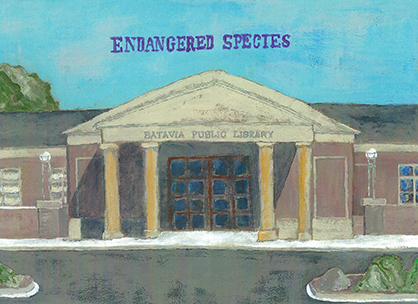Bunkong Tuon
Still Water
My grandmother and I had this ritual.
Whenever I visited, I drove her
to the local state park off of Rt. One.
Her left hand gripped a walking stick,
while the other held on to me.
Bikers and joggers flew past us
with “good morning” or “good afternoon.”
On these walks we talked about Grandpa,
who didn’t raise his voice at her
until the very end, or her only living
sibling, the younger sister in Cambodia
she would never see again.
Then she asked about my job,
a professor at a private college.
She wanted to know how students
and colleagues were treating me.
My aunts said that these walks
were good. They got her
to leave the house.
Then one afternoon in spring
a group of teenagers saw us walking.
“Hey,” one of the kids yelled.
“I had Chinese food last week.”
His girl told him to stop, but he kept
insisting that he loved it.
Not a violent slur, but enough to drag
up things said and done to me at that age:
something about coming from a country
so poor we had to eat dogs and use leaves
to wipe our asses, about being pushed
around and spat at walking home
from school. But I was now a professor,
in my thirties, with a doctorate in literature.
My body shook. Grandmother squeezed
my right hand and said, “Don’t pay them
any attention. Let’s keep walking.
We’re almost near our spot
where the boulder overlooks
the still water of the lake.
Look, the trout swims below us.”First Published in Paterson Literary Review
Bunkong Tuon teaches writing and literature in the English Department at Union College, in Schenectady, New York. His recent publications include Nerve Cowboy, Más Tequila Review, Chiron Review, and Patterson Literary Review. Gruel, his first full-length collection, is recently published by NYQ Books: http://books.nyq.org/title/gruel
